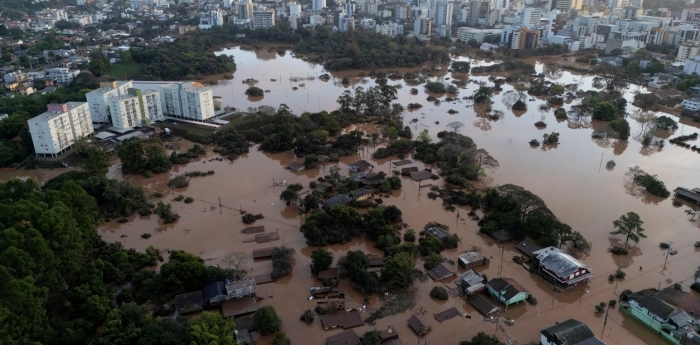Brazil's Wine Country Devastated by Floods
Landslides and Rising Waters Devastate Vineyards in Heart of Brazilian Wine Industry
2024-05-10

In the verdant heart of Brazil's wine country, Rio Grande do Sul, recent catastrophic flooding has unleashed a wave of destruction, bringing unprecedented challenges not only to the inhabitants' lives and livelihoods but also to the very foundation of one of the area's most celebrated industries: winemaking.
Home to the bulk of Brazil's wine production, Rio Grande do Sul's lush landscapes were transformed into scenes of devastation as torrential rains pounded the region. Local reports estimate that roughly 80% of the state has been impacted, displacing over 165,000 people and resulting in the tragic deaths of at least 107 individuals, with hundreds more still missing.
Lucía Porto, a local journalist and co-founder of Brasil de Vinhos, recounts the first moments of disaster. "The valleys of Taquari, Central, and Serra Gaúcha were among the first hit. Mudslides swept away everything in their path—from vineyards and trees to cars, houses, and lives," she says, her voice tinged with concern.
Eduardo Valduga, a viticulturist and director of Casa Valduga winery in Vale dos Vinhedos, describes the event as unparalleled in the region's history. "In Vale dos Vinhedos, many vineyard owners witnessed the destruction of their vines by massive landslides from the highest peaks," Valduga shares, visibly shaken by the disaster's magnitude.
Further devastation is evident in Pinto Bandeira, where vineyard owner Heleno Facchin shares his harrowing experience. "The flood came within 30 meters of our house... Only divine intervention could have diverted it from taking our home, which lay directly in its natural path. Instead, it took our vineyard. We lost a hectare of Merlot and half a hectare of Tannat—vines that took us ten years to cultivate," Facchin explains with a somber resignation.
The full extent of the damage to the region's vineyards is still uncertain, as ongoing floods hinder mobility, isolate cities, and access to the affected areas remains restricted by Civil Defense prioritizing emergency supplies and rescue missions. Even Porto Alegre, the regional capital, is largely underwater after the river burst its banks. This includes Porto Alegre airport, which is expected to remain closed until the end of the month, further complicating rescue efforts.
This natural disaster poses a significant new challenge for the viticulture industry in Rio Grande do Sul, one of Brazil's most prosperous wine regions and a rising star in the international market. The road to recovery promises to be long and arduous, testing the resilience of local producers amid ongoing economic and climate uncertainty.
As the waters eventually recede, the spirit and determination of Rio Grande do Sul's wine community will undoubtedly play a pivotal role in not just rebuilding but perhaps redefining what it means to thrive in the face of adversity. This resilience, woven into the fabric of their daily lives, underscores a collective commitment to reclaim and revitalize a cherished heritage, ensuring that the region's wines continue to flow, embodying the strength and spirit of its people.
Founded in 2007, Vinetur® is a registered trademark of VGSC S.L. with a long history in the wine industry.
VGSC, S.L. with VAT number B70255591 is a spanish company legally registered in the Commercial Register of the city of Santiago de Compostela, with registration number: Bulletin 181, Reference 356049 in Volume 13, Page 107, Section 6, Sheet 45028, Entry 2.
Email: [email protected]
Headquarters and offices located in Vilagarcia de Arousa, Spain.